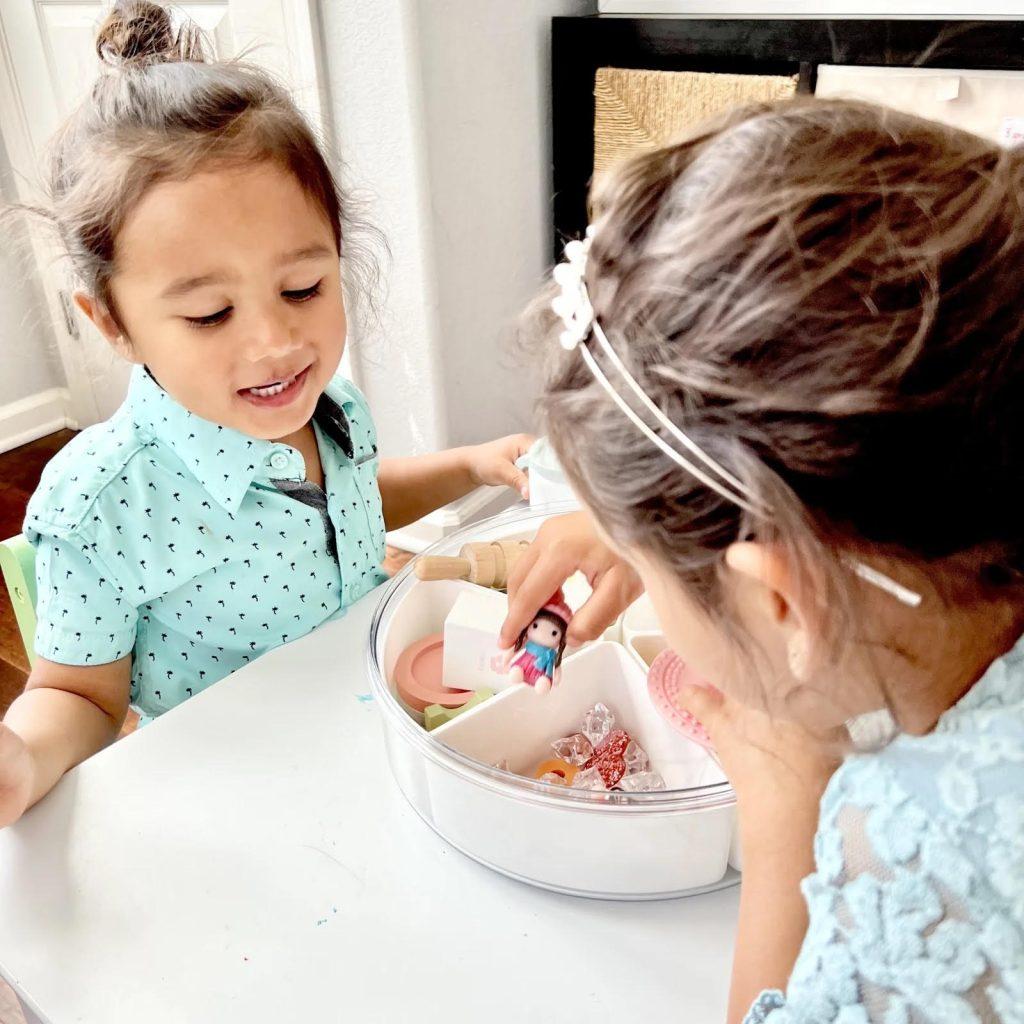Editor’s Note: This is a guest contribution from Poonam Parag of Blossom Bloom Kids.
Imaginative play, or pretend play, is a type of play in which children use their imagination to create make-believe scenarios. They may act out roles, create stories, or explore different possibilities. Imaginative play is a natural part of childhood, and it can benefit children’s development.
Social and emotional development
Imaginative play helps children develop social and emotional skills. Playing with others teaches them how to take turns, share, and cooperate. They also learn how to express their emotions healthily. Imaginative play can also help children develop empathy as they learn to understand the feelings of others.
Language development
Imaginative play helps children develop their language skills. As they play, they use language to communicate with others, create stories, and solve problems. They also learn new vocabulary and grammar.

Cognitive development
Imaginative play helps children develop their cognitive skills. They have to use their imagination, problem-solving skills, and creativity when they play. They also learn how to think critically and make decisions.
Creativity
Imaginative play is a great way for children to express their creativity. They can use their imagination to create new worlds, characters, and stories. They can also use their creativity to solve problems and make their play fun.
Overall development
Imaginative play can help children develop in many different areas. It can help them develop their social, emotional, language, cognitive, and creative skills. Imaginative play is an essential part of childhood, and it can benefit children’s development.
External references
- The Benefits of Imaginative Play (Horizon Education Centers)
- What is Imaginative Play and Why is it Important for Young Children?
- Why Pretend Play Is Important to Child Development
- The Power of Pretend Play: More Than Just Make Believe
How to encourage imaginative play
There are many ways to encourage imaginative play in children. Here are a few tips:
- Provide children with a variety of materials to use in their play. This could include blocks, dress-up clothes, dolls, action figures, and more. Check out our Bloom Box playdough & kinetic sand kits for ideas. Or, we have Bloom Bags for portability & travel.
- Set up a space for children to play that is safe and inviting.
- Be a role model for imaginative play. Let children see you playing make-believe and talk about the different things you are doing.
- Ask open-ended questions to encourage children to use their imagination. For example, you could ask, “What would happen if you were a superhero?” or “What would you do if you found a magic wand?”
- Give children time to play. Imaginative play takes time, so don’t rush children through their play.
Imaginative play is a valuable part of childhood, and it can provide many benefits for children’s development. If you want to encourage imaginative play in your children, try the tips above. With a bit of encouragement, your children will be using their imaginations to create all sorts of fun and exciting play scenarios.

















